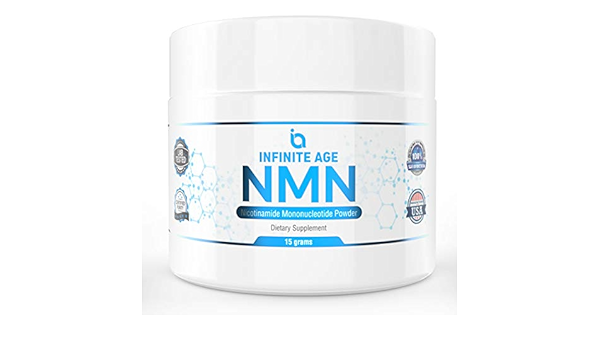NMN is a special molecule found naturally in our bodies. It helps make another important molecule called NAD+, which is fuel for our cells. NAD+ is needed for lots of important jobs in the body, like turning food into energy, fixing our DNA, and helping cells stay healthy.
As we get older, our bodies make less NMN and NAD+.
This can lead to health problems like low energy and diseases that come with aging. Taking NMN supplements might help boost NAD+ levels and keep our cells working well, which could help us stay healthy and live longer.

What is NMN?
NMN is a type of molecule made from ribose and nicotinamide. Nicotinamide Mononucleotide helps our bodies make NAD+, which is important for turning food into energy, fixing our DNA, and handling stress at the cell level. As we get older, our NAD+ levels go down, which can cause health problems like low energy and a higher chance of age-related diseases.
Taking NMN as a supplement might help increase our NAD+ levels, which can support our overall health and help us live longer.
How Could NMN Benefit Your Health?
NMN helps our bodies make NAD+, which is an important substance that helps with energy production, fixing our DNA, and keeping our cells healthy. As we get older, our NAD+ levels go down, which can lead to health problems related to aging. By increasing NAD+ levels, NMN may offer several benefits, including:
- More Energy
Increased energy levels and improved mitochondrial function. NMN helps increase levels of NAD+, which is important for producing energy in our cells. When we have more NAD+, our cells work better, leading to more energy. This is especially helpful as we get older and often feel more tired.
- Better Blood Sugar Control
Enhanced insulin sensitivity and better blood sugar control. Taking NMN can improve how our bodies respond to insulin, which is important for keeping our blood sugar levels healthy. This can help prevent conditions like type 2 diabetes.
- Heart Health Improvement
Protective effects on the cardiovascular system. Studies suggest that NMN can help protect our heart. It improves blood flow and makes our blood vessels more flexible, which is important for preventing heart disease.
- Brain Health
Support for cognitive function and brain health. NAD+ is crucial for keeping our brains healthy. NMN may help protect against diseases like Alzheimer’s by boosting NAD+ levels, which supports memory and overall brain function.
- Improved Muscle Strength
Improved muscle strength and exercise performance. NMN can help improve muscle strength and endurance, which is especially beneficial for older adults. Our muscles can weaken as we age, but NMN may help keep them strong.
- Slowing Down Aging
Potential anti-aging effects by activating proteins that repair DNA. Many researchers believe that NMN could help slow down the aging process. By increasing NAD+ levels, NMN may activate proteins that help repair our DNA and keep our cells healthy, potentially helping us live longer.
In summary, NMN shows promise for boosting energy, improving blood sugar control, supporting heart and brain health, enhancing muscle function, and possibly slowing down aging.
How does NMN Work in the Body?
When we take NMN as a supplement, our bodies quickly change it into NAD+ inside our cells. This happens thanks to a special doorway that lets NMN easily get into our cells. Once NMN is inside, it gets turned into NAD+. NAD+ then helps with lots of important chemical processes in our cells that keep us alive and healthy.
Dosage and Safety
NMN is usually safe to take, but it’s important to take the right amount. Studies show that doses between 250 mg and 1,200 mg per day may provide health benefits. Most research shows that NMN doesn’t cause many side effects. But it’s still a good idea to talk to your doctor before starting any new supplement, especially if you have any health conditions.
Are there any Side Effects of NMN, or is it safe to take?
Although NMN is largely safe, some individuals may experience mild side effects, such as:
- Nausea
- Fatigue
- Headaches
These side effects are typically rare and may vary from person to person. Monitoring your body’s response to NMN supplementation is crucial.
Where can you find NMN in your Food?
NMN is found naturally in various foods, although in small amounts. Some NMN-rich foods include:
- Avocados: 0.36 to 1.60 mg per 100 grams
- Broccoli: 0.25 to 1.12 mg per 100 grams
- Cabbage: Up to 0.9 mg per 100 grams
- Tomatoes: 0.26 to 0.30 mg per 100 grams
- Raw beef: 0.06 to 0.42 mg per 100 grams
Adding these foods to your meals can help keep your NMN levels up.
Final Thoughts
Nicotinamide mononucleotide, or NMN, is a substance that can help us stay healthy and live longer. It works by increasing NAD+ levels in our bodies, which may boost our energy, support our heart, improve brain function, and even slow down aging.
Although research is still being done, the results so far look promising. Before starting NMN or any supplement, it’s important to talk to a doctor to make sure it’s right for you and your health goals.
FAQs
- What is NMN?
NMN is a naturally occurring molecule that helps produce NAD+, essential for energy metabolism and cellular health.
- What are the benefits of NMN?
NMN may enhance energy metabolism, improve insulin sensitivity, support heart health, protect brain function, and potentially slow down aging.
- How should I take NMN?
The typical dosage ranges from 250 mg to 1,200 mg per day. It’s best to consult a healthcare professional for personalized advice.
- Are there any side effects of NMN?
NMN is generally safe, but some people may experience mild side effects like nausea or headaches.
- Can I get NMN from food?
Yes, NMN is found in small amounts in foods like avocados, broccoli, cabbage, tomatoes, and raw beef.
